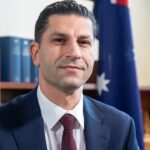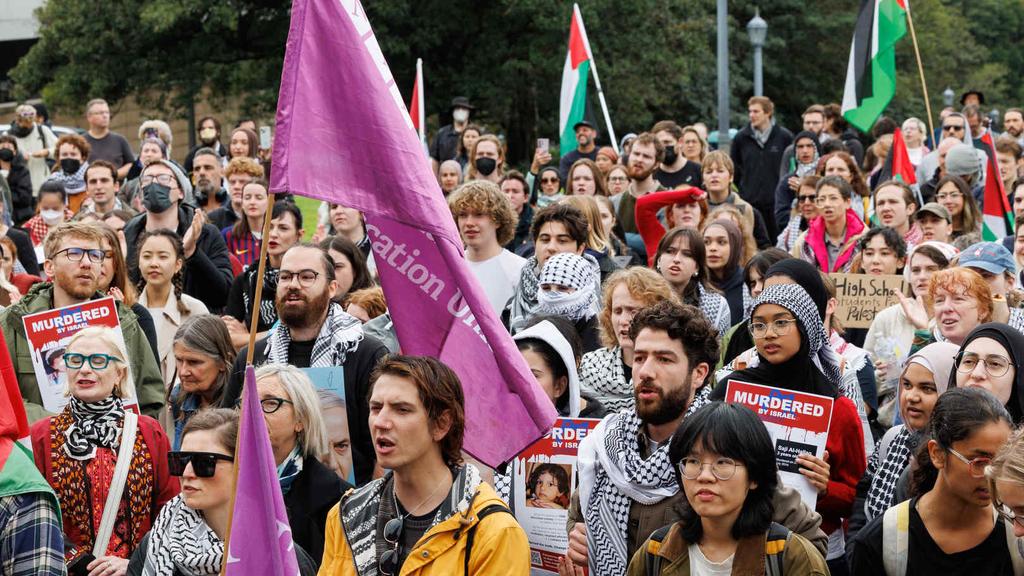Internal emails reveal controversial campus strategy
The University of Sydney has come under intense scrutiny after internal emails revealed plans to allow Jewish students separate exam entry points to avoid a pro-Palestinian encampment.
This proposal has drawn severe criticism, with one Jewish community leader likening the move to “a new Jim Crow.” The suggestion was revealed through documents obtained under a Government Information Public Access (GIPA) request. These documents illuminated how the university attempted to manage ongoing protests that overtook its campus for nearly two months in 2024.
Risk strategy outlines separate access
In a May 14 email titled “Student encampment planning #20,” Lauren Macaulay, USYD’s associate director of risk strategy and operations, outlined precautionary measures for the upcoming exam period. According to meeting minutes, it was suggested that exams should proceed in the MacLaurin Hall and the Great Hall, but disruptions should be avoided at all costs.
“Mitigations include installing the large electronic signs (big and visible) stating our expectations and ensure that Jewish students have ways to avoid the encampment when gaining entry to exams,” the minutes read.
University promises enforcement via misconduct policies
The university added that if any disruptions did occur, responses would fall under their misconduct and consequence frameworks. This would include contingency plans like special consideration or rescheduling exams during the replacement period.
In the internal documents, more detailed plans emerged about “safe spaces for students and staff,” improved communication with student groups, and offline contingency planning. These efforts were part of a broader response to ensure student safety during a time of heightened tension and activism on campus.
Accusations of segregation reach parliamentary inquiry
Jack Pinczewski, a board member of the Great Synagogue in Sydney, presented the issue at a state parliamentary inquiry into anti-Semitism. The inquiry held its first session in Sydney this week. In his submission, he expressed outrage at the university’s decision-making process, describing it as an act of racial segregation.
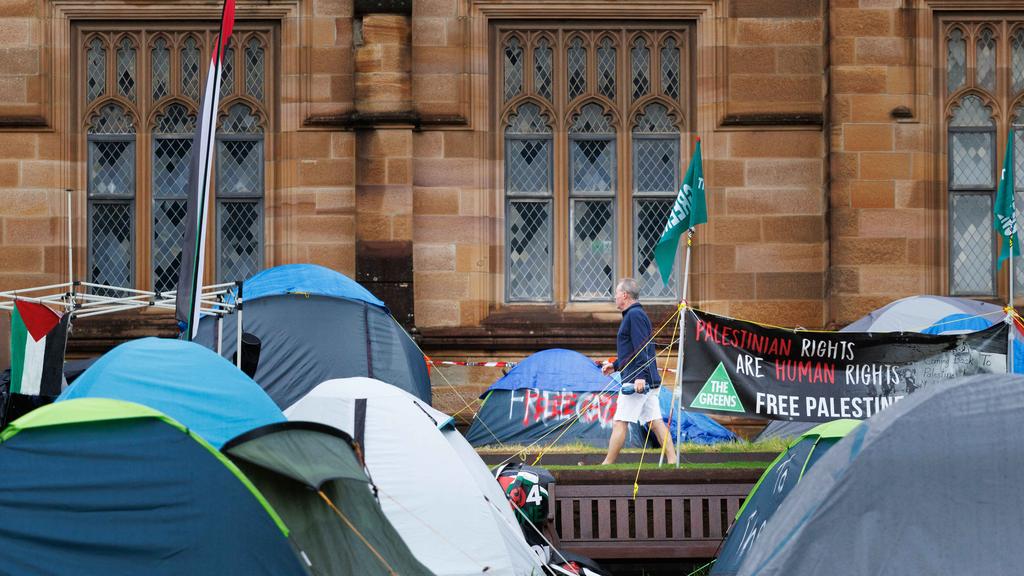
Community leader denounces plan as discriminatory
“Despite their good intentions – to protect Jewish students – that university executives contemplated separate entries for Jewish students to exam rooms is an impossibly shameful racist enterprise,” Mr Pinczewski said.
“As a society, would we accept separate entries to buildings for Asian or Aboriginal students? We would not.“
“We acknowledge that notions of ‘separate but equal’ is not equality at all. What university executives were engaged in through this process was, likely inadvertently, a new form of Jim Crow.”
University clarifies policy as inclusive, not targeted
While it’s unclear if these proposed plans were fully implemented, the university defended its actions, stating there was “no suggestion” the access points were for a specific group of students.
“Tent-based protest camps were a new phenomenon for Sydney and other universities around the world,” a university spokesperson explained. “We worked hard to ensure our campus remained peaceful, our community safe, and our teaching and research could continue uninterrupted.”
Broader access points introduced for all students
During the exam period, USYD reportedly introduced various strategies to protect students and maintain academic integrity. These included alternative access points for all students and electronic signs reminding encampment participants that exam disruption would not be tolerated.
“The different access points offered were available for anyone wishing to use them,” the spokesperson emphasized. “There was no suggestion they were intended for a select group of students.”
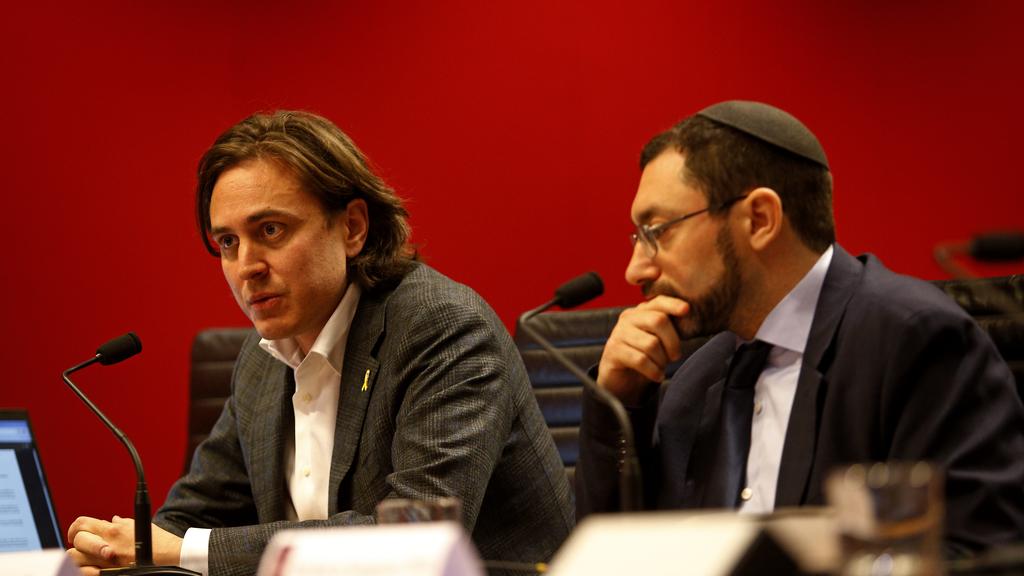
Community leader questions university’s integrity and intent
However, Mr. Pinczewski dismissed the university’s clarification, accusing USYD of shirking responsibility.
“Their denial of what exists in black and white – contemporaneous documents showing senior university executives were set on segregating Jewish students from their peers – calls into question their commitments to the Jewish community since October last year,” he stated.
“As long as attitudes like this persist, one can but wonder if the university’s apologies really mean anything at all.”
He urged that the university be summoned before the Legislative Council committee examining anti-Semitism in New South Wales to account for its actions.
Emails reveal chaotic internal response to protest encampment
Beyond this incident, emails from the GIPA application reveal the intense and, at times, frantic internal response to the unexpected protest. The protest caused damage to the historic quadrangle and drew reactions from both pro-Palestinian and pro-Israeli groups.
Staff tracked incidents rigorously, with departments communicating ahead of time about potential clashes, including an anticipated visit from the right-wing Australian Jewish Association (AJA).
“Political differences aside, the AJA is planning to come to openly antagonise the situation,” one email warned on May 2. “Campus Security, and the police, need to be ready for such an event.”
University emphasizes de-escalation and protest monitoring
Meeting records from the same day noted that in case of police intervention, “the priority should be on de-escalating violence.” Staff also received updates from social media teams monitoring content related to the protests.
In a wellbeing update dated May 17, staff documented concerns raised by Muslim protesters. “Muslim protesters reported feeling profiled when trying to enter the library,” the note stated. “Sarah reiterated to protective services staff that they can’t just pick out certain people for screening.”
The same update also recorded “instances where female SUMSA students were being sworn at around campus (particularly when close to roads).” Questions were also raised about whether face coverings contravened university policy, with the matter involving the vice-chancellor.
New campus access policy introduced after encampment
Following the encampment’s conclusion in June 2024, the university implemented a new Campus Access Policy. This policy aims to “better safeguard the wellbeing of our students and staff while ensuring free speech on campus.”
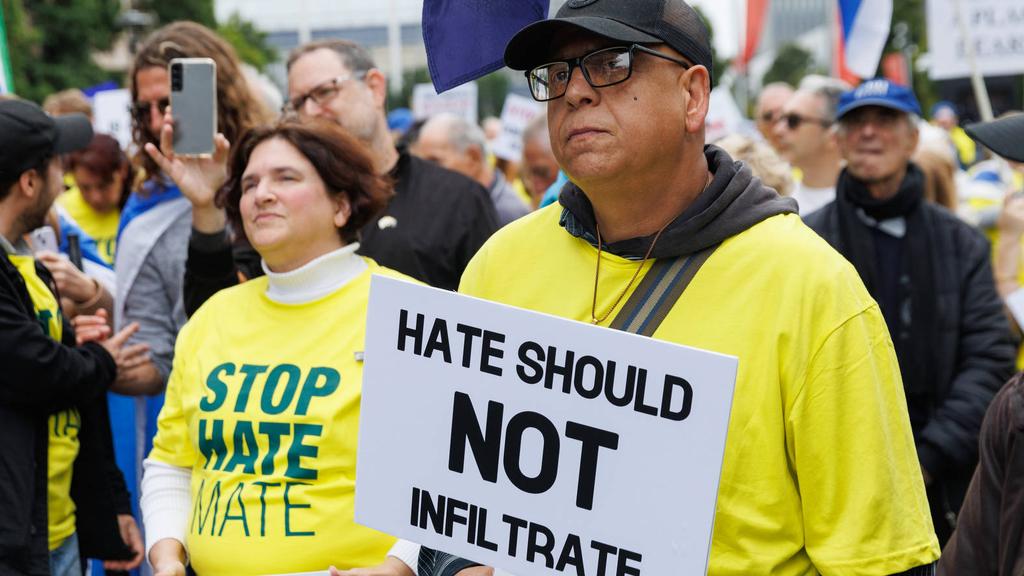
New civility rule prompts free speech concerns
This initiative followed an independent review of university procedures. Among the changes introduced was a “New Civility Rule,” which requires all speakers to clarify the meaning of controversial or contested language.
Tim Roberts, CEO of the NSW Council for Civil Liberties, warned that USYD’s measures risked undermining core university values. “USYD has shown a tendency to overreact and, in doing so, undermined both the ideals of open free debate in a university,” Roberts said.
“If you specifically single out students, a group of students in the response, what you only seek to do is further embolden sort of divisions and the divisive aspect of debates, as opposed as coming at it from a human rights perspective.”
University pledges zero tolerance for hate speech
The university responded by reiterating its commitment to core values: “We remain absolutely committed to freedom of speech and academic freedom with zero tolerance for any form of racism, threats to safety, hate speech, intimidation, threatening speech, bullying or unlawful harassment, including anti-Semitic or Islamophobic language or behaviour.”
USYD also bolstered its campus security by installing 50 additional CCTV cameras. They pledged continued engagement with Jewish student leaders and the Sydney Jewish Museum. Several pending policy changes are expected to address social media conduct and campus communication.
Ongoing debate reflects challenge of balancing rights and safety
The controversy has triggered intense public debate over the limits of security measures during politically sensitive events and the impact such decisions have on minority groups. It highlights the fragile balance universities must maintain between ensuring safety and upholding freedom, without reinforcing harmful divides.
As the University of Sydney Jewish student segregation issue continues to unfold, many eyes remain on the university’s next steps—and whether it can restore trust across its diverse student body without compromising the values it claims to uphold.


